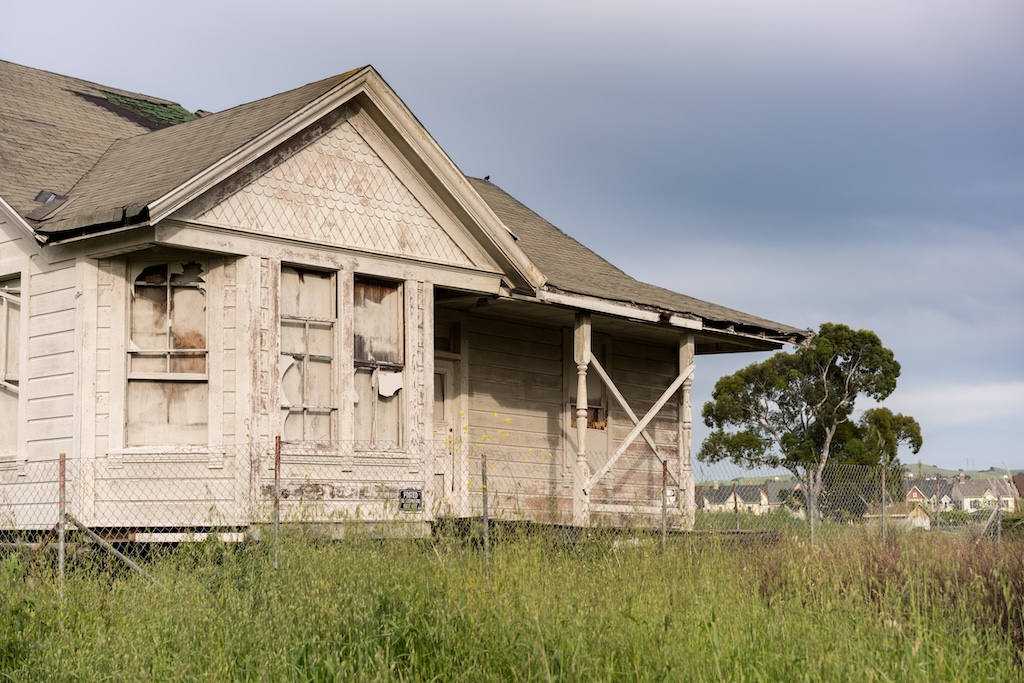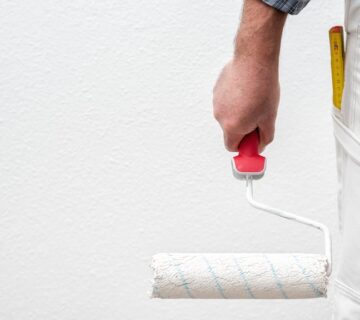Maintaining your home’s paint job is crucial for preserving its aesthetic charm and structural integrity. Seasonal changes bring different challenges for maintaining exterior paint, from the harsh sun of summer to the damp conditions of winter. A seasonal approach to maintenance can help you tackle these challenges effectively. Proactively managing these aspects can prevent minor issues from becoming costly repairs. This blog outlines a checklist for maintaining your house’s paint job throughout the year, ensuring it remains in top condition regardless of the season.
Spring: Post-Winter Recovery
Inspect for Winter Damage
Winter can be harsh on exterior paint. Inspect your home for any chipping, cracking, or peeling paint that may have resulted from the cold and moisture. Early spring, with its milder weather, is an ideal time for this inspection. Take this opportunity to assess the overall condition of your home’s exterior and plan for any necessary remediation. Addressing these issues promptly can prevent further degradation of your home’s exterior.
Clean Surfaces
Spring cleaning should extend to your home’s exterior. Wash away the grime and salt deposits left by winter. A gentle wash using a low-pressure hose and mild detergent can do wonders for your paint’s appearance and longevity. This not only enhances the appearance of your home but also allows you to identify any hidden damages more easily. Regular cleaning maintains the paint’s vibrancy and extends its life.
Repair Damages
Address any damage you’ve identified. This might include scraping off peeling paint, sanding rough areas, and applying a fresh coat of paint to damaged spots. Spring’s moderate temperatures are conducive to outdoor painting and repairs. Ensuring these repairs are done before the more extreme temperatures of summer and winter can save time and expense in the long run. This proactive approach helps maintain the structural integrity and aesthetic quality of your home.
Summer: Protection from the Sun
Check for Sun Damage
Summer brings intense sunlight, which can cause paint to fade or blister, particularly on the west and south-facing sides of your home. Look for signs of sun damage and consider if touch-ups or a repaint are necessary. Monitoring these effects early in the season can guide you in scheduling necessary maintenance. Using UV-resistant paint can also help mitigate these issues in the future. It’s crucial to address these problems promptly to avoid more extensive damage.
Trim Vegetation
Overgrown trees and bushes can scratch and wear away paint. Trim any foliage that touches your home to prevent such damage and enhance air circulation, which helps keep the paint dry and intact. This also prevents the accumulation of organic material, which can lead to moisture retention and fungal growth. Maintaining clear space around your home not only protects the paint but also enhances the property’s curb appeal.
Gutter Maintenance
Ensure that your gutters are clean and functioning properly. Summer storms can lead to water damage if gutters are clogged, impacting your paint job. Regularly checking and cleaning your gutters can prevent water from pooling and seeping into your home’s structure. Proper gutter maintenance is crucial for directing water away from your home, protecting both the paint and the overall structural integrity.
Fall: Preparation for the Cold
Clear Debris
Fallen leaves and debris can trap moisture against your home’s exterior. Keep the surroundings of your house clean to prevent mold and mildew growth that can damage your paint. Regular clearing of your home’s perimeter can significantly reduce the risk of moisture-related damage. This maintenance is especially important in climates where wet winters can exacerbate the decay and degradation of exterior materials.
Seal Gaps
Before the cold sets in, check and reseal gaps around windows and doors. This prevents moisture from seeping in, which can damage both your paint and the underlying material. Proper sealing not only keeps out moisture but also improves energy efficiency by preventing drafts. Timely sealing before the onset of cold weather can significantly enhance comfort and reduce heating costs.
Final Inspection
Conduct a thorough inspection before winter. Address any issues such as cracks or peeling paint that could worsen with the coming cold and moisture. This final inspection ensures that your home is prepared to face the harsher conditions of winter. A comprehensive check allows for early detection of potential problems, facilitating timely repairs that maintain your home’s defense against the elements.
Winter: Monitoring and Minor Touch-ups
Regular Check-ups
Winter conditions can be tough on your home. Regularly check for any new damage and address minor issues as they arise, weather permitting. This ongoing vigilance helps prevent small problems from escalating into major repairs during a season when conditions can prevent extensive exterior work. Keeping a close eye on your home’s exterior during winter can also prepare you for more substantial maintenance tasks in the warmer months.
Plan for Spring
Winter is a good time to plan any major maintenance or repainting projects for the coming year. This includes researching paints, contractors, and budgeting for upcoming work. Planning ahead allows you to schedule projects at the most appropriate times and take advantage of seasonal pricing variations. It also gives you ample time to consult with professionals and ensure that you are ready to act as soon as the weather permits.
Final Thoughts
Seasonal maintenance is key to extending the life of your home’s paint job. Each season brings its own set of challenges, but with a proactive approach, you can ensure your home stays looking great year-round. Regular inspections, cleaning, repairs, and seasonal-specific care will help protect your paint and, by extension, your home. Adopting a structured approach to maintenance not only preserves the aesthetic appeal of your property but also contributes to its long-term durability and value. For more home maintenance tips and advice, visit our website at sisupainting.com and check out our blog at sisupainting.com/blog.





No comment